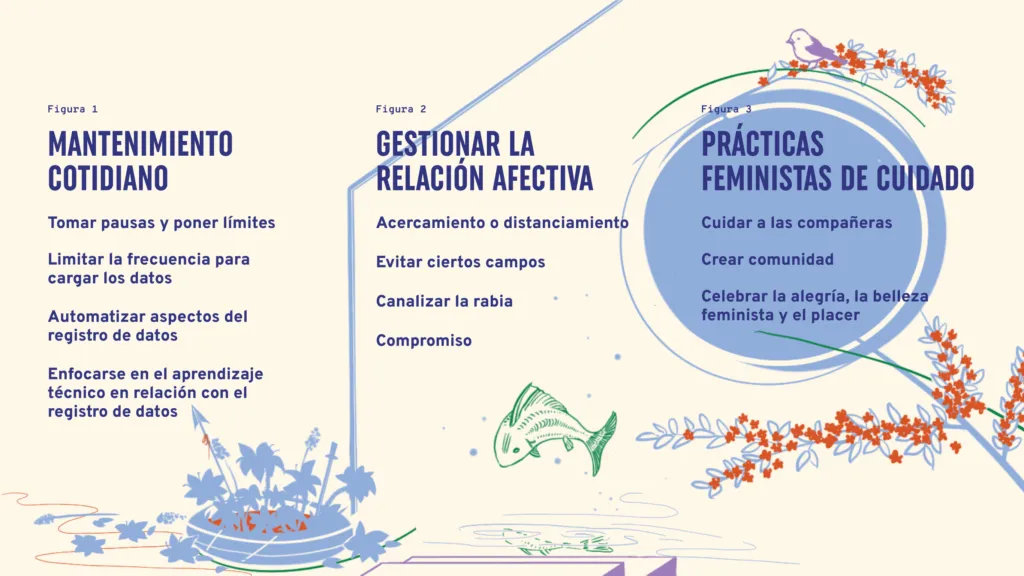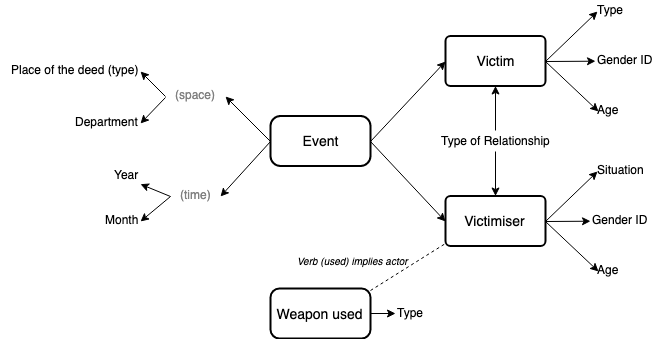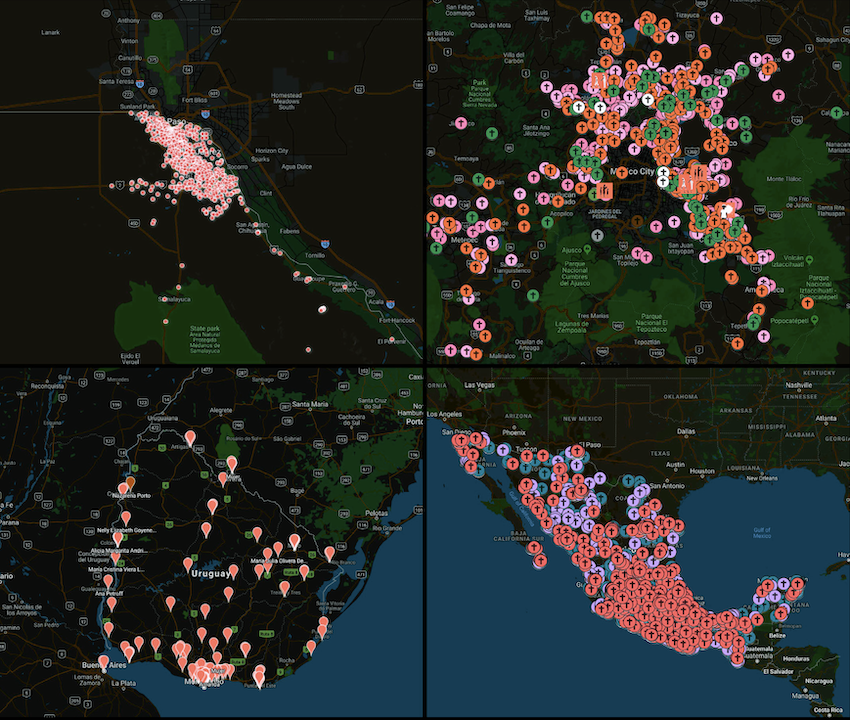Tag: strategic datafication
-

Data-Inflected Visions of Feminicide (Suárez Val, 2025)
This paper advances the notion of “data-inflected visions” to show how various visual representations may come come to be imagined as data, and how doing so opens up different meanings for the political and affective work of data. The visuality of social issues is produced through competing hegemonic and alternative visions, and conventional visualization is…
-
Feminicide Data Activism (Collectif Féminicides Par Compagnons ou Ex at al, 2023)
This chapter weaves together, as nodes in a network of care, the experiences of activists collecting feminicide data in France, Germany, Kenya, Kyrgyzstan, Mexico, Russia, the United States, and Venezuela. In our work, we draw from a long genealogy of feminist research and activism on femicide/feminicide and gender-related violence. To contextualise our practices, we draw…
-

Data artivism and feminicide (Suárez Val et al, 2023)
Suárez Val, H., D’Ignazio, C., Acosta Romero, J., Teng, M. Q., & Fumega, S. (2023). Data artivism and feminicide. Big Data & Society, 10(2). https://doi.org/10.1177/20539517231215356 Data has become a key format for activists to visibilizar (make visible/call attention to) and denounce social issues. Drawing on the concept of “artivism,” we name as data artivism those works…
-

Feminicide data, emotional labor and self-care (Suárez Val et al, 2022)
Producing feminicide data has historically been an important feminist tactic to make gender-related violence visible and to draw attention to the lack of data from official sources. María Puig de la Bellacasa says, in relation to the production of knowledge, that “care” implies simultaneously the work of daily maintenance, an ethico-political commitment and the affective…
-

Data Frames of Feminicide (Suárez Val, 2021)
Feminicide (or femicide) is a feminist category that designates –and denouncesthe gender-related violent deaths of women, adolescents, and girls, especially murders. Especially in Latin America, the category has provided a frame for feminist activists, and most recently governments, to gather data about feminicide. This work seeks to understand the implications of how feminicide data are…
-

Monitoring, recording, and mapping feminicide – experiences from Mexico and Uruguay (Madrigal et al, 2019)
In this article, four researchers and activists – mappers of feminicide in Ciudad Juarez, the State of Mexico, Mexico, and Uruguay – present, in our own voices, our diverse personal and embodied experiences of monitoring, recording, and mapping cases of feminicide. Our objective is to reflect on the practices of creating these imperfect tools of…
